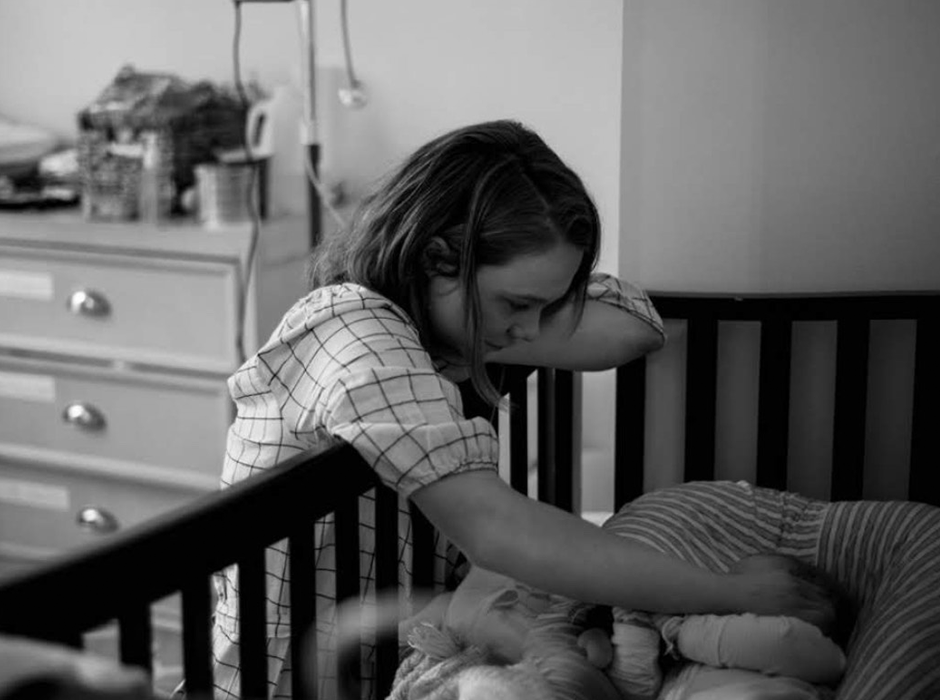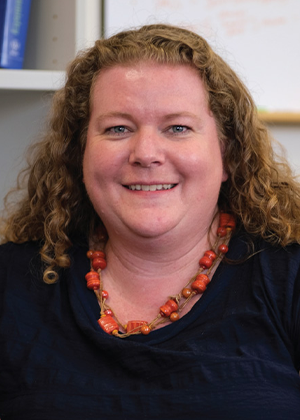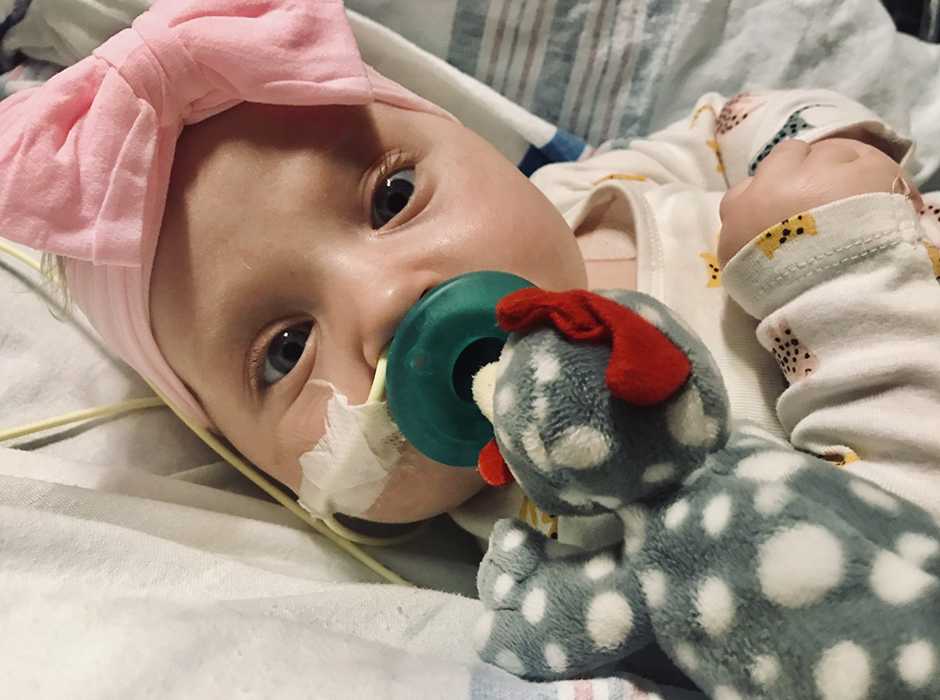
Sally Aldrich watching over her daughter Claire in 2019.
Sally Aldrich describes her late daughter Claire as “just perfect”.
Born on the sunny Sunday that was 14 April 2019 in North Carolina, Claire would spend the next eight months as the centre of her family’s world before dying from a rare genetic disease.
Testing showed she had a rare HIVEP2 genetic mutation which resulted in seizures, and a possible second rare mutation which led to the deterioration of her brain and ultimately her death.
The precise nature of this second mutation could not be confirmed, leaving scientists unable to provide answers to the family.
“That lack of closure is so hard to live with as a parent,” Mrs Aldrich says.
“It is a bit embarrassing to admit but, before Claire, I naively thought that when it came to genetics most things had already been ‘discovered’, but now I know there is still so much more for us to learn.”
It was this thinking that led to the creation of ‘Claire Kits’ less than four years later.

Associate Professor Louise Bicknell says Genetics Otago’s relationship with Sally Aldrich has grown significantly because of Sally’s commitment and drive in honouring her late daughter.
Genetics Otago, a University of Otago flagship Research Centre, offers several different science kits to New Zealand schools to teach students about genetics and Mrs Aldrich worked with the Genetics Otago team to produce their latest version, the ‘Claire Kit’.
“Our kits reach over 2000 students each year, honours Claire’s legacy by telling her story, and brings more visibility to rare genetic disorders which affect up to 7% of the population,” says Associate Professor Louise Bicknell, Co-Director of Genetics Otago.
The ‘Claire Kit’ helps students learn about technologies that can read a person’s DNA and detect alterations so they can understand what causes genetic disorders, opening their minds to the possibility of making new genetic discoveries themselves one day because there is still so much to be discovered regarding the human genome and its mutations.
The kit material was developed in consultation with Sally Aldrich, Dr Rebecca Oliver and Dr Emma Wade, with the goal that students can appreciate that this is not just science in a lab, but very important research that affects the lives of real families.”

Sally Aldrich says her daughter Claire was a beautiful and smiley baby.
The creation of these kits wasn’t Mrs Aldrich’s first step towards a brighter future for people like Claire though.
First came a move for her entire family from the United States to Dunedin so that she could study healthcare at the University of Otago.
She had always wanted to work in the field, but this motivation was strengthened by Claire’s death, as Mrs Aldrich felt she had an obligation to follow her dreams in place of her daughter, who did not live to follow her own.
After arriving here, the family made a financial donation to Genetics Otago to start the ‘Claire Aldrich Legacy Fund’ which has helped to educate the next generation of geneticists and is a way for the family to bring the memory of Claire with them to New Zealand.
Having just finished the Health Sciences First Year course at Otago, Mrs Aldrich reflects on all that has happened during her time here.
“Claire has given my life perspective,” Mrs Aldrich says.
“Though sometimes things were painful, unfair and nonsensical, I’m so thankful I got that time with her and so thankful she chose me to be her mother."
- Kōrero by the Division of Health Sciences Communications Adviser, Kelsey Schutte.
